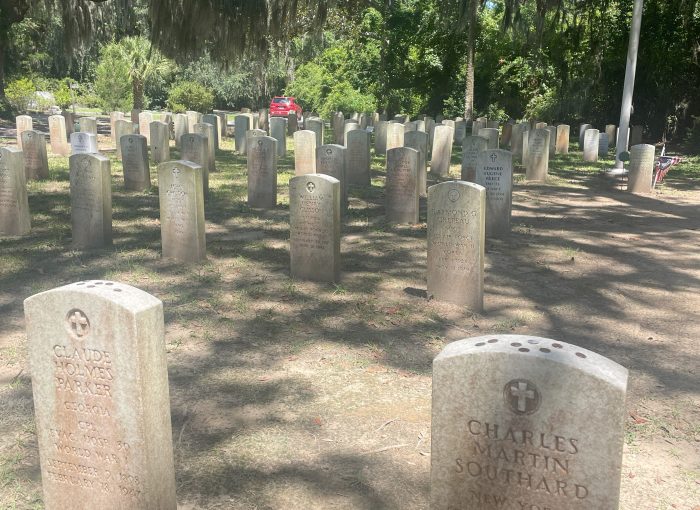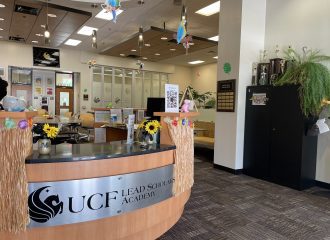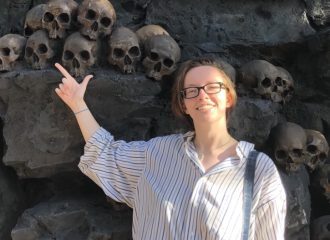by Isabella Love
My community at UCF came to me last winter, a little after I started at the university, with UCF’s Veteran’s Legacy Program, or the VLP. The VLP’s main mission is to keep the memory of deceased Veterans alive by looking through census records and other documents to write biographies on the individual veterans, as well as working with grade school teachers to create curriculums centered around veteran history. This program exists because of the collaboration between UCF’s Department of History and the National Cemetery Administration.
If you had told me a year ago that today I would be sitting in a cubicle in the history department tearing up over the draft card signature of someone I had never met, I probably would assume I had either gone crazy or cracked from undergraduate stress.
I did not fully understand what I was getting into when I applied for the VLP- while I was interested in military history, my background was mainly in fashion history, and I did not have the long line of familial military ties that many military history aficionados seemed to have. This fear expanded when I arrived on my first day on the job and met my incredibly knowledgeable and qualified co-workers. What was I doing here–a young, scared undergrad whose accomplishments paled in comparison to seemingly every single one of my coworkers? Still, I stayed on, hoping no one would notice the clear sore thumb sticking out in their midst.
Eventually, I adjusted, and I not only found myself completing the work I was doing, but truly, emotionally connecting with it. This meaning was something I had been searching for in the job market for a while, but up until that point I had come up dry. With the VLP, though, I was seeing something as simple as a census record or a draft card in a whole new light. If you had told me a year ago that today I would be sitting in a cubicle in the history department tearing up over the draft card signature of someone I had never met, I probably would assume I had either gone crazy or cracked from undergraduate stress. Now, though, I see aspects of the real people behind the numbers when I look at these documents. Parts of their personalities peek out once you are looking for them. From a signature showing a childhood nickname to the description of a soldier’s appearance, for some family this is all they have from the deceased.
Oftentimes, in Western culture, those who have passed are seen as malicious spirits, and in turn, graveyards are a place for this violent activity of the undead. In reality, graveyards are a place of love.
As I spent more time with the program, I started to notice an odd quirk that my coworkers and I had picked up. When referring to these long-deceased veterans, we had begun to refer to them as if we knew them. As if they were an old friend we knew from another life, not a stranger who lived in a completely different time. It was a running joke, getting partway into a conversation and realizing we were referring colloquially to a veteran, but it always went deeper than that. We were forming intimate, genuine connections with people who may not have been mentioned this way in years. These were not ghost stories–there are no corporals looming around graveyards–these are real people. They may only be alive in memory, but through this remembrance, there is a part of them that stays alive.
When we think of the dead and graveyards, we let our imaginations drift off into the land of the spooky and supernatural. Oftentimes, in Western culture, those who have passed are seen as malicious spirits, and in turn, graveyards are a place for this violent activity of the undead. In reality, graveyards are a place of love. It’s a place to show how much we care about the dead and put in the effort to keep their memory alive. This is what speaks to me so much about the Veteran’s Legacy Project. Erasing the thought that the dead are spooky, and instead respecting them and truly connecting with those that have passed.



